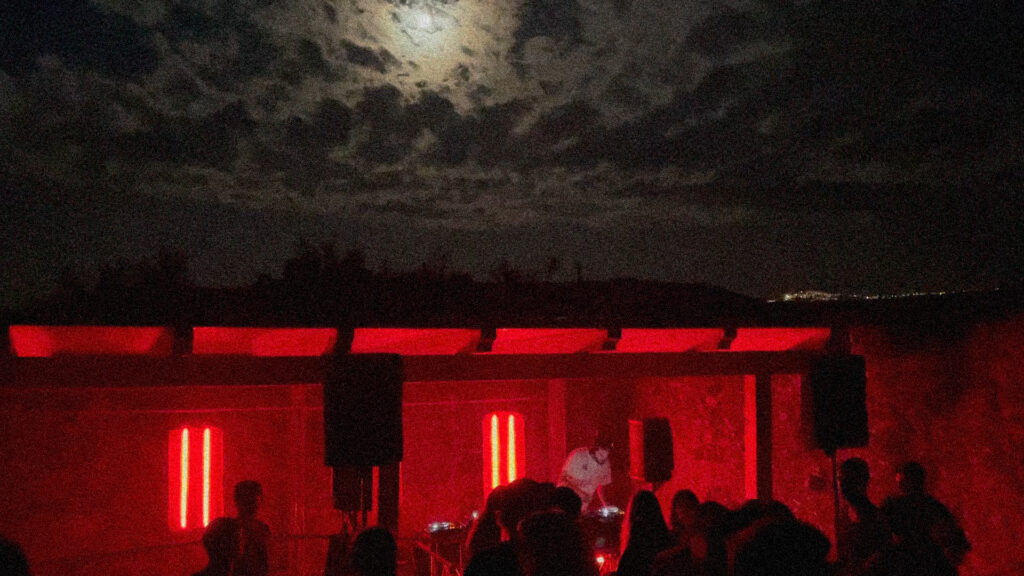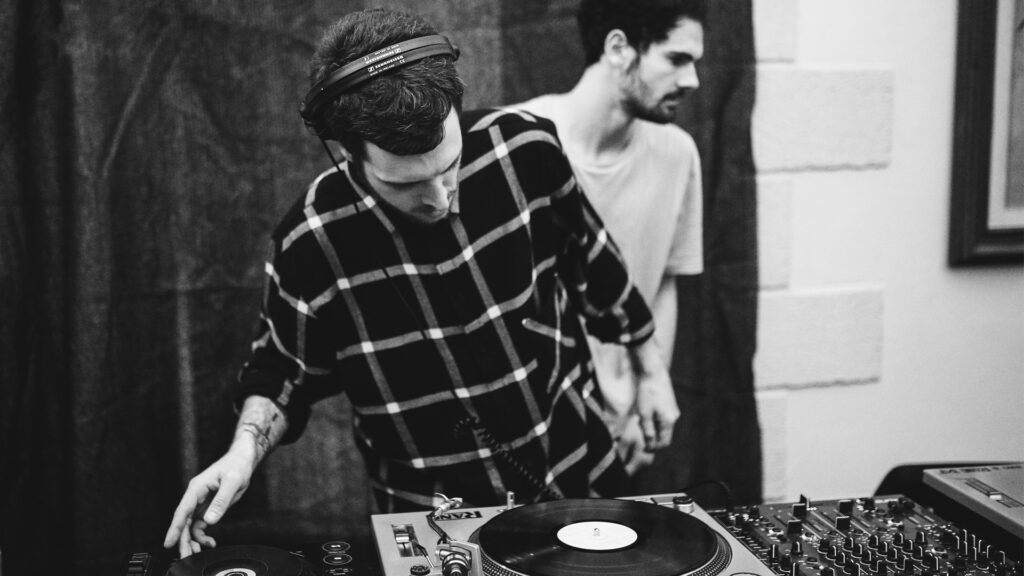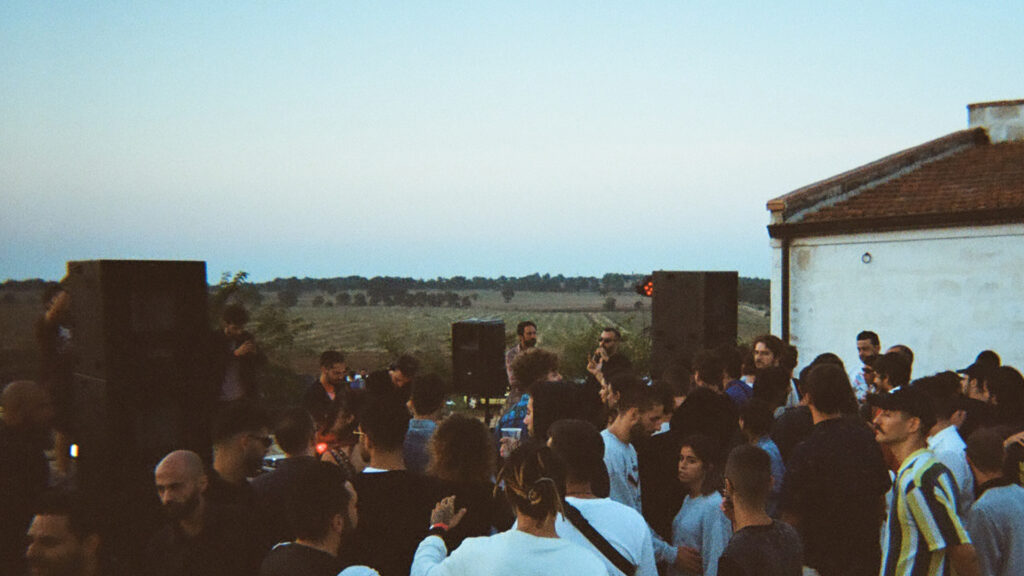XCPT: Frontier sonics
Matera is one of the oldest towns on Earth. Tens of thousands of years ago, settlers first carved their homes into its hillside and for millennia communities came and went, cramming themselves into the Sassi (cave dwellings). In the 1950s, things began to change. The place was declared a national disgrace by the prime minister and its inhabitants were forced to relocate to homes in the nearby countryside. The town has since received funds to preserve the abandoned cave dwellings and today Matera thrives off a steady stream of tourists coming to gawp at the Sassi and dine at the town’s Michelin starred restaurants. Yet locals, like producer Nothus (real name Domenico) lament how the same support does not extend to newer local projects like his party, XCPT, which he has run with his friend Delikwe (AKA Giuseppe) since 2013.
“There’s this idea that parties are parties, and they shouldn’t be regarded as culture,” said Guillermo Gonzalez Abad, founder of ITHAKA festival, in a recent article for RA. It’s something I can imagine Nothus saying, too, since he has always been forced to look further afield to get his cultural fix.
Growing up, Nothus and Delikwe used to drive over the border with friends to the coastal town of Bari, in the Puglia region, to get a taste of nightlife. There they caught a glimpse of the Saturday night fever which drove people to go out “with the aim to get wasted and fucked,” he reflects, but “with this [mindset] you cannot create any interest in music or connection with the crowd.” So they decided to start something that would contribute to the other side of Italy’s club culture: a thriving community of fans, promoters and DJs who see clubs as spaces for creating connections and discovering new sounds.
But to host such a party they had to find somewhere where it would be financially viable to do so. The cost of running a club night is expensive. Just to hire a venue in Berlin, it costs around €2,000 euros, as this article explains. Although the venue fees in Milan might not be as steep as Berlin, it still counts as a considerable fee on top of paying for staff, a sound system and DJs. Add other costs — such as copyrights — and it becomes almost impossible to get started independently. “I don’t think electronic music works as an industry in Italy because you don’t have any opportunities to do these parties legally,” he resigns.

Opportunities to start their own night were still out there, however. They just had to snoop around a bit more. Roaming the hinterland between Basilicata and Puglia, they would sheepishly approach local farmers and ask if they could put on an event using any free space they might have: barns, storerooms…anything. Once they’d managed to reach an agreement with the farmer, they would drive a fridge full of drinks and a sound system to the area, send out the coordinates to the venue over social media hours before the event and like that, the seed of XCPT was planted.
What was first an inconvenience soon became something which they could cultivate and shape their own way. Nothus and Delikwe consider the warm-up to be the most important part of a club night, for example, since it sets the mood for the rest of the evening. The custom in Italy, however, is to turn up to the club at 1 or 2am, so “the warm up is kind of ignored,” he says. To counteract this they would do, “long warm ups of three or four hours [which] would be done by someone close to the group like me, Delikwe or our friend Franco Fonato.”


A similar tactic was used by Dimensions and Red Bull in their series of nights Get Down Early. This followed in the footsteps of artists like Theo Parrish who would warm up for lesser known DJs when he played at Plastic People in London. If it’s done well, this part of the night is an opportunity to hear the weirder sides of a DJs collection whilst potentially playing to a more sober crowd who can actively engage with the music — which is exactly what XCPT were aiming for.
Once their nights had become a playground for sharing music, XCPT started stamping this ethos onto a label and released their first record, Fragments of Loneliness. The title track begins as a dreamy house excursion with a gentle synth gliding beside 4/4 kicks, but it soon takes an abrupt turn. Breaks appear out of nowhere and a throbbing sub-pulse replaces the kicks, giving it a hint of jungle or even garage. Nothus was concerned about releasing it into the world as it didn’t fit into any particular niche. But he was onto something unique as Andrea’s rework of the original proves. The fellow Italian producer bypasses the house intro and bursts straight in with the breaks, chopping them up aggressively and adding loping, resonant kicks underneath. All Nothus’ original was missing was that extra push into uncharted territory.
Not that jungle is uncharted territory, but neither it nor dubstep are popular styles in Italy, yet they now form the backbone of some of XCPT’s most prominent releases. Sativa Club, for instance, is a collaboration between Nothus and Delikwe and through it they put out the label’s first purely jungle record in 2021. “I remember it was sold out on pre-order on Bandcamp, which was unreal,” Nothus reflects happily. It’s testament to their daring and persistence as they reach a new audience and influence the tastes of people back home. Now the regulars at their parties, who once berated Nothus for killing the vibe by playing jungle in one of his sets, beg him to play more of it.
Enthused by the success of Sativa Trax, the two have continued in this vein and collaborated with a collective called Butu Yard on the dubstep record Good Ova Evil, which came out in January of this year. Dread and gritty vocals from a masked MC cut through a swelling bass line. It sounds like it would be at home on The Bug’s London Zoo but Nothus is quick to defend that they’re not simply aping styles. “I was worried about putting it out at the time as it could come across like a fake operation, but it’s not. That guy who is [speaking] on the record is from the South of Italy and is just super passionate about Jamaica, roots and reggae music — he lives for it.”
Back in the 80’s and 90’s, the likes of Lory D and Andrea Benedetti took the sound of Detroit techno and turned it into the Sound of Rome — a heavy metal take on its American predecessor with blisteringly fast hats, and synths that float somewhere between melancholy and impending doom. With a tight-knit crew of local producers and friends, XCPT are building something equally singular. But while The Sound of Rome is easier to label as a menacing brand of techno, XCPT’s parameters remain ambiguous.
Nothus cites the third chapter of their compilation series Time Horizon as a snapshot of the label’s (and the night’s) diversity and community feel. “It’s so varied yet has a stable flow between one track to the next. In the same track you can have electro with acid, or grime with jungle or footwork.” Distorted breaks and a rasping acid synth fight for dominance on ‘Pirate Utopias’, a track by one of Nothus’ closest friends Marco Segato. Thunderous bass and skittsh hats on DJ Plant Texture’s ‘Yeah Boy’ bring to mind footwork, but the stripped-back interludes of sub-bass and retro wave pads add tones of dubstep and trance, too.
Cast out like their ancestors, XCPT have found solace in a nomadic approach and built their own rave culture. They have created a space which defies customs and is completely independent from the rest of Italy. As people flood in to wonder at Matera’s ancient past few would suspect it of harbouring such a youthful, vivacious culture only miles away — a beating heart in the middle of nowhere.
